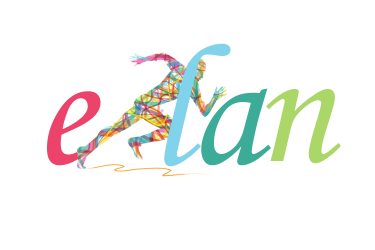Pronunciation is often misunderstood. Consequently, it is commonly thought of as a boring process which involves aimless repetition and pointless correction of individual sounds such as /r/ /l/ /v/ /b/ etc. Very few teachers truly and completely understand the full scope of pronunciation teaching and its benefits to the students. And those who do unfortunately have not done much to change the students’ or industry’s perception of its role and benefits. They have not been able to demonstrate to the students the enormous effect of pronunciation on the pace of their improvement in other areas notably in speaking and listening including grammar and vocabulary.
Perhaps, the worst assumption that most students and teachers make is that pronunciation is ONLY about improving CLARITY! No one realizes that it IS and SHOULD also be about FLUENCY.
Now what is fluency? Or who is fluent? A person who can use the language to express his ideas, thoughts and feelings easily and accurately. What are the two most basic things we need to speak the language easily and accurately.
One is WORDS. Yes you need thousands of them. It is estimated that the average size of a native speaker’s vocabulary is between 17000-20000 (that’s debatable as I have read conflicting articles about it) depending on how educated you are. But, you don’t need 17000 to speak fluently or understand native English in everyday situations or in common situations. Most native speakers use an average of 1000-3000 words daily (again, it depends on your education and work).
Two is SENTENCES. Even if you know every single word of the 171,476 words in the Oxford dictionary, if you don’t know how to form a sentence with them, they don’t mean much. That’s where grammar comes into play. That’s what grammar is all about. It’s about learning how to utilize your vocabulary to form a meaningful message or thought.
So, back to the point I was making, the aim of pronunciation teaching should NOT ONLY be CLARITY, but ALSO FLUENCY. How can pronunciation improve fluency though? It’s very simple. A good pronunciation course trains your brain to retain the input you receive from native speakers (whether in the streets or on TV) much more easily and then consequently reproduce it accurately. Well thought out and structured pronunciation training should do to the brain of a second language learner what an intensive workout does to the body of a body builder. You don’t build and carve up your physique just by watching what body builders do or by reading body building magazines, you actually have to get off your butt and hit the gym. At the moment, most students are learning ABOUT the language, not USING the language. You’ve got to come face to face with it. That’s what pronunciation does for you. In a good pronunciation course, you come face to face with the language. Your brain starts to actively process the language.
There is a HUGE misconception that you don’t learn grammar when you study pronunciation. Again, a well designed pronunciation course teaches grammar and vocabulary THROUGH pronunciation. There is no reason why you can’t learn about Conditionals 1, 2 and 3 while you are training your mouth and ears to recognize and produce the sounds smoothly, naturally and correctly. Anyone who thinks that can’t be done doesn’t know the first thing about pronunciation. Pronunciation deals with sounds. Now, just because it deals with sounds does not imply that it has nothing to do with grammar and vocabulary learning. It just means that it uses sounds, the most basic form of language, to target them. Language is primarily sounds. That’s what it is ladies and gentleman.
Let me explain to you the difference between someone who studies the language through pronunciation and another who studies it only through casual conversations, grammar rules, reading etc.
The latter always hits a plateau. What does that mean? You improve up to a certain point and then the strangest thing happens, you just stop improving. It doesn’t matter how hard you try, doesn’t matter how bad you want it, you just can’t get yourself to break through that English fluency plateau.
Those who study the language THROUGH pronunciation never stop improving. As a matter of fact, the pace at which they improve after the training is dramatically faster. I had hundreds of students shocking their general English and IELTS teachers with their rapid improvement after taking the pronunciation course.
What do you guys think? What are your thoughts on teaching pronunciation? If you are a teacher, tell us how you teach pronunciation in your classroom? Does your school run a pronunciation course? What is your understanding of pronunciation? Leave a comment.

Leave a Reply